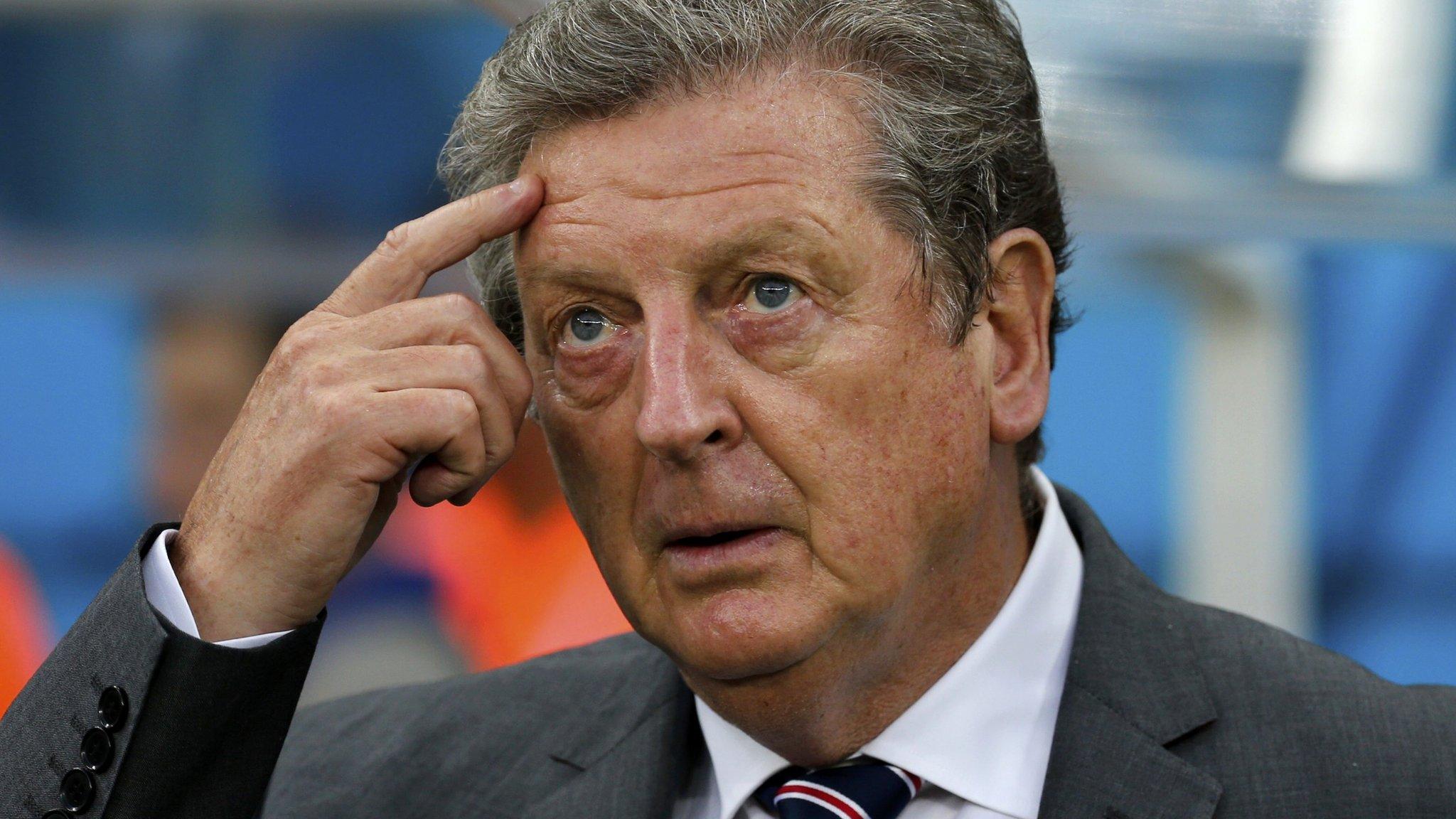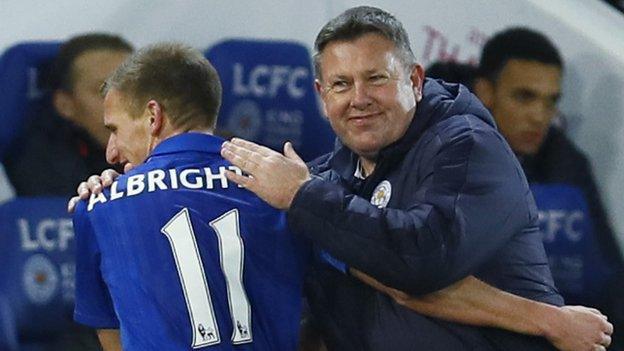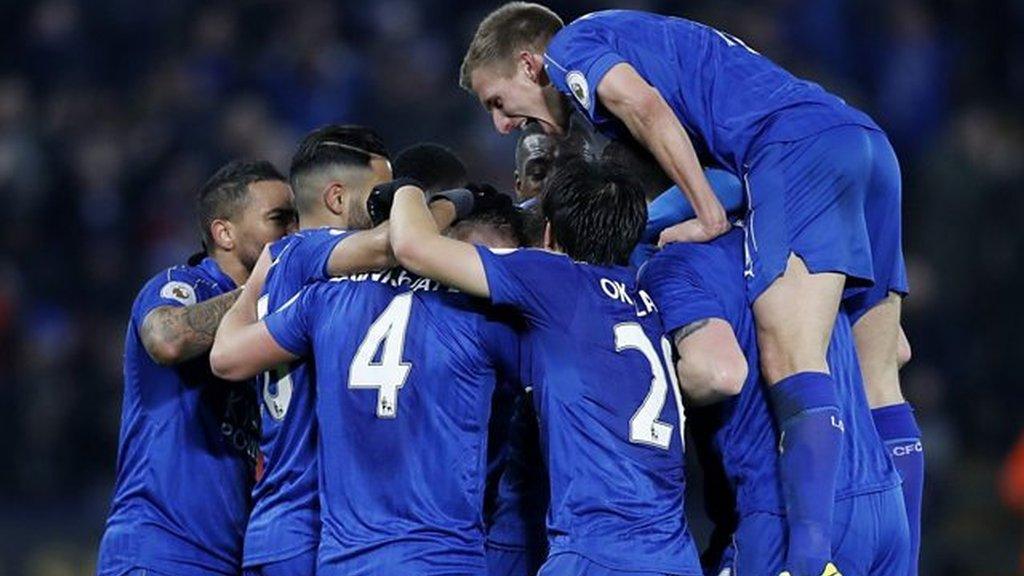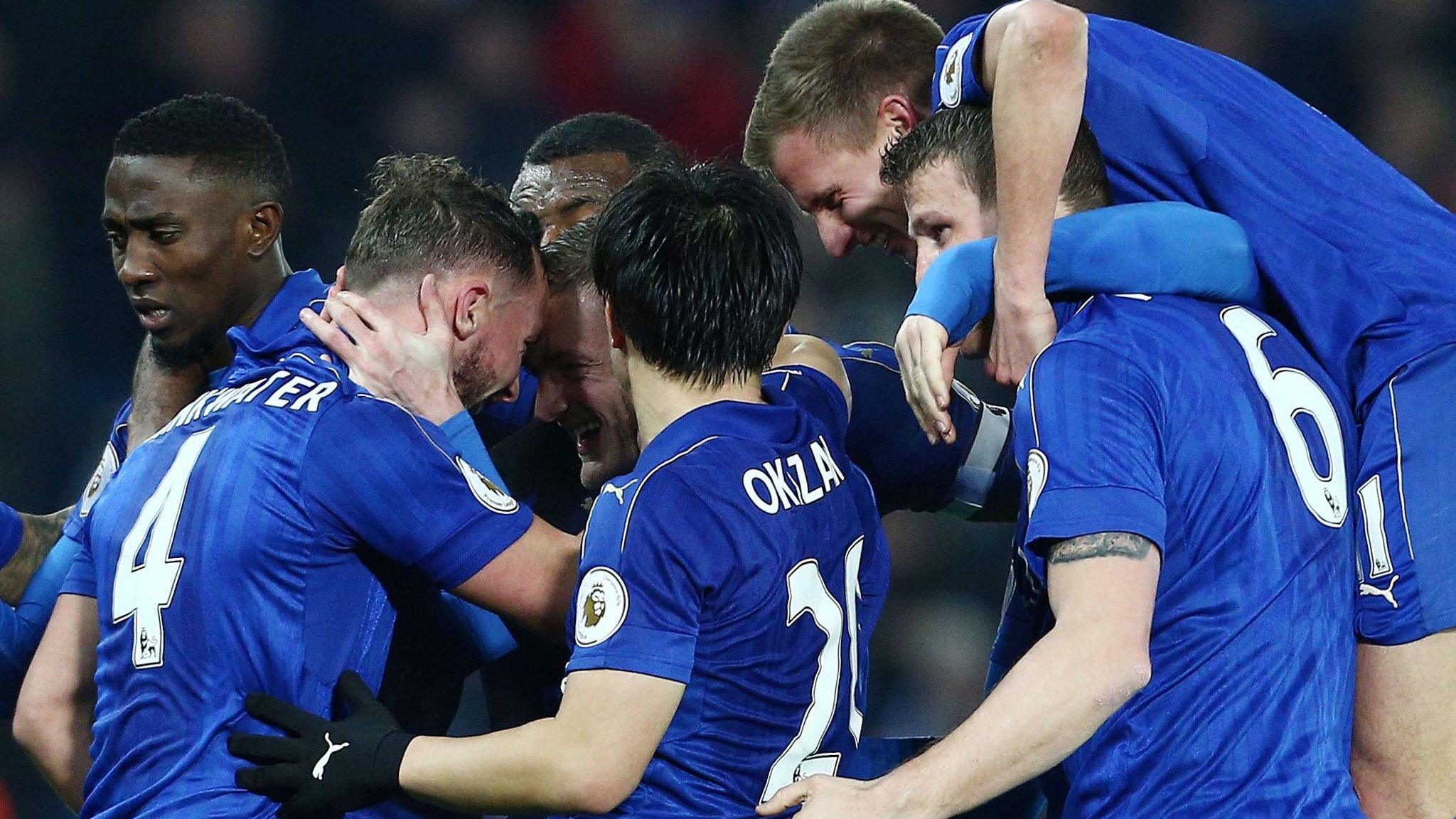Leicester: Shakespeare to discuss manager job next week
- Published
Craig Shakespeare: Leicester City caretaker boss 'enjoys' manager's role
Leicester caretaker manager Craig Shakespeare says he will not know until "the middle of next week" if he will get the job on a permanent basis.
Shakespeare, 53, has been in charge since the Premier League champions sacked Claudio Ranieri on 23 February.
The Foxes host Hull City in the league on Saturday at 15:00 GMT, after which they will take a training break.
Shakespeare then expects to sit down with the club's owners once the squad returns on Wednesday.
He previously met with vice-chairman Aiyawatt Srivaddhanaprabha and director of football Jon Rudkin on Wednesday but says the possibility of him taking over full time "never came up".
"I'm there to listen to what their wishes are at the moment and I'm very comfortable with how things have gone and what they've told me so far," he said.
"There hasn't been a lot of dialogue, but I don't expect there to be because I'm trying to prepare the team for the next match."
When asked if he would stay on in a support role if the club hire someone else as manager, Shakespeare said he "wouldn't rule anything out".
Leicester have spoken to other potential candidates to replace Ranieri, including former England boss Roy Hodgson.
'Emotionally shattered'
Having been assistant to both Nigel Pearson and Ranieri, Shakespeare said he relished the opportunity to take charge during their 3-1 victory over Liverpool on Monday.
Shakespeare added that he would be "shattered emotionally" if he was appointed Leicester boss but welcomed the onus being on his decision making.
"I've had input in team selections before but the difference is standing in the touchline area when on you're own, having to make those decisions," he said.
"As a football coach, it's the game that really makes you alive and it's decision making in those games that is crucial and it's something I do enjoy.
"When you play, you become physically tired after games but as a coach and a manager it's definitely more of a mental thing.
"You have to get your head on to talk to the media after the game, you want to address players, so there's a lot going on."
- Published1 March 2017

- Published27 February 2017

- Published27 February 2017

- Published27 February 2017
